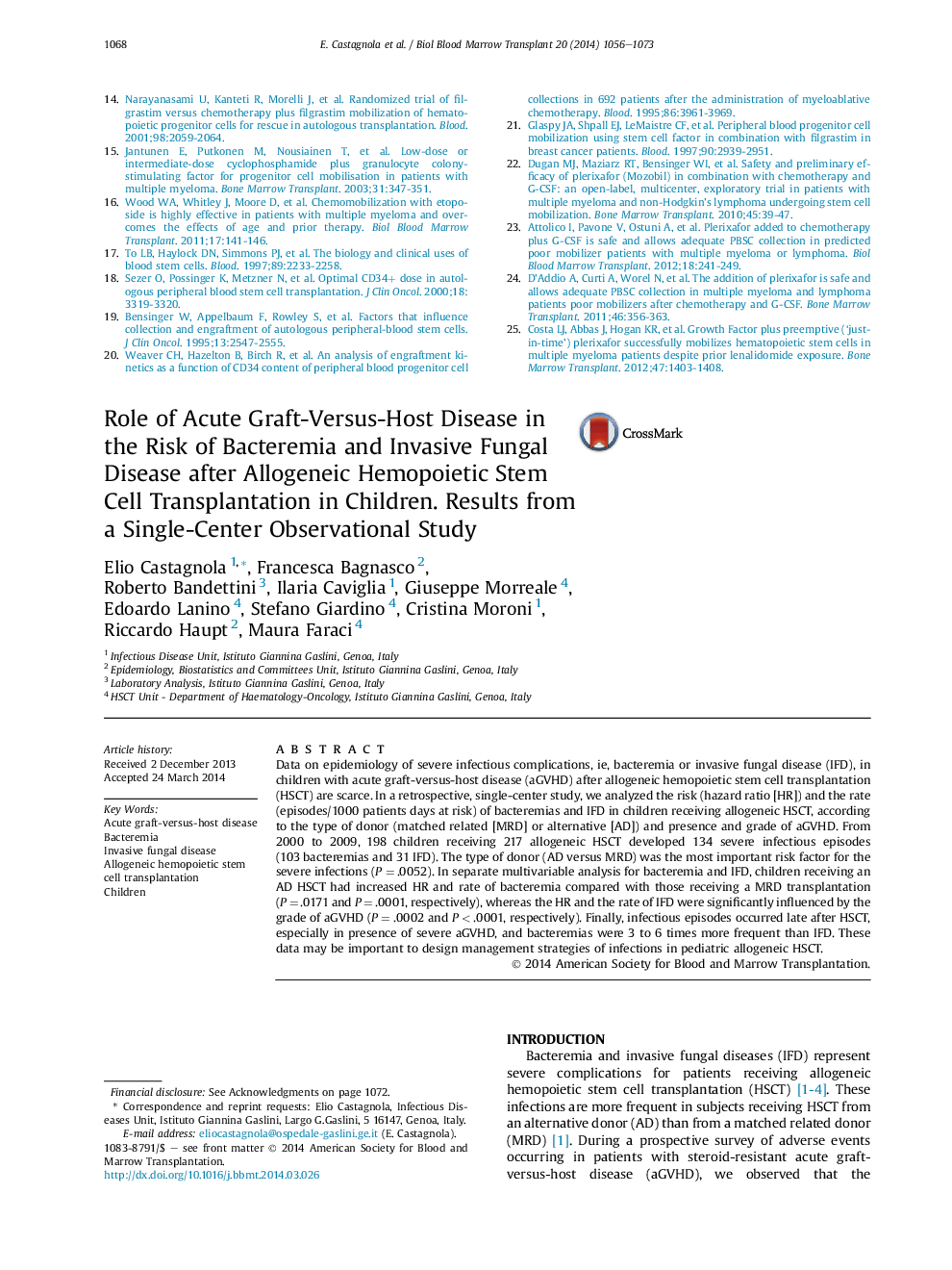| Article ID | Journal | Published Year | Pages | File Type |
|---|---|---|---|---|
| 2102325 | Biology of Blood and Marrow Transplantation | 2014 | 6 Pages |
Data on epidemiology of severe infectious complications, ie, bacteremia or invasive fungal disease (IFD), in children with acute graft-versus-host disease (aGVHD) after allogeneic hemopoietic stem cell transplantation (HSCT) are scarce. In a retrospective, single-center study, we analyzed the risk (hazard ratio [HR]) and the rate (episodes/1000 patients days at risk) of bacteremias and IFD in children receiving allogeneic HSCT, according to the type of donor (matched related [MRD] or alternative [AD]) and presence and grade of aGVHD. From 2000 to 2009, 198 children receiving 217 allogeneic HSCT developed 134 severe infectious episodes (103 bacteremias and 31 IFD). The type of donor (AD versus MRD) was the most important risk factor for the severe infections (P = .0052). In separate multivariable analysis for bacteremia and IFD, children receiving an AD HSCT had increased HR and rate of bacteremia compared with those receiving a MRD transplantation (P = .0171 and P = .0001, respectively), whereas the HR and the rate of IFD were significantly influenced by the grade of aGVHD (P = .0002 and P < .0001, respectively). Finally, infectious episodes occurred late after HSCT, especially in presence of severe aGVHD, and bacteremias were 3 to 6 times more frequent than IFD. These data may be important to design management strategies of infections in pediatric allogeneic HSCT.
